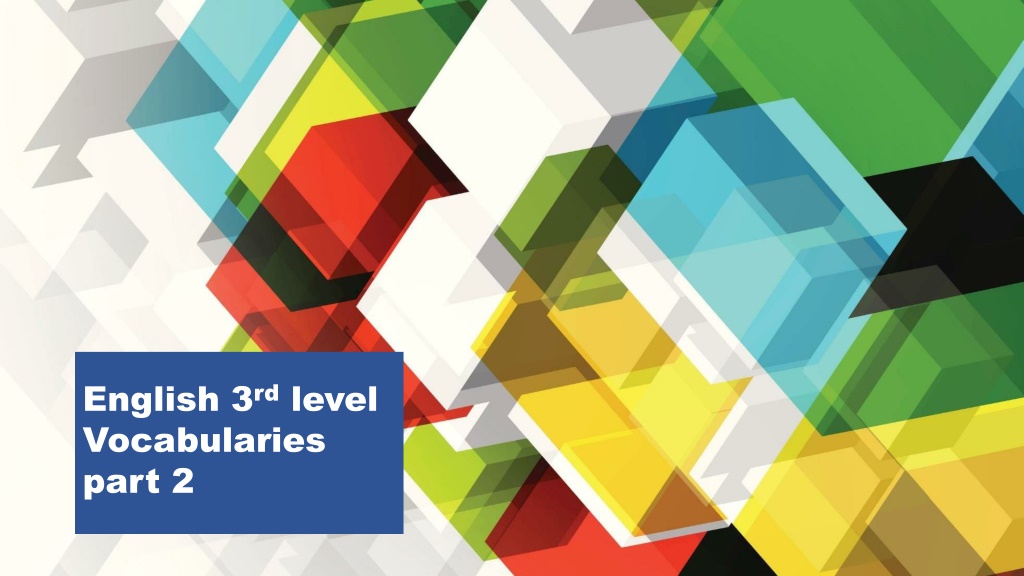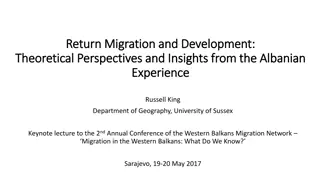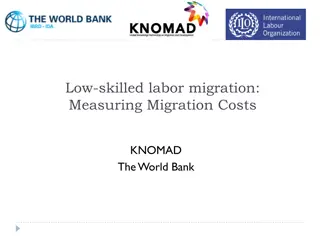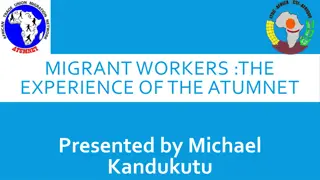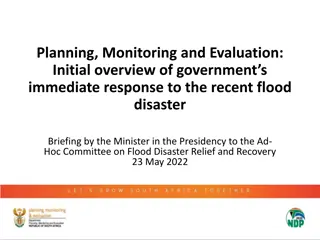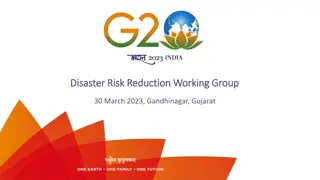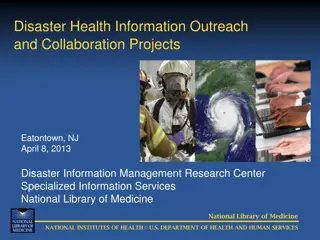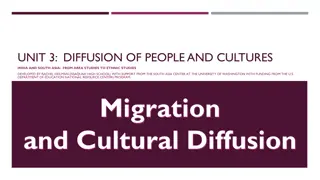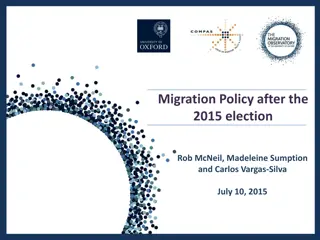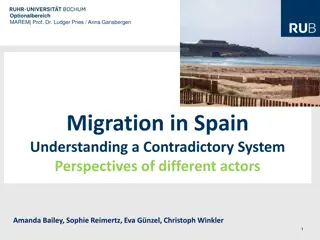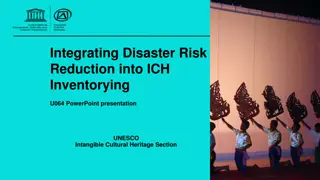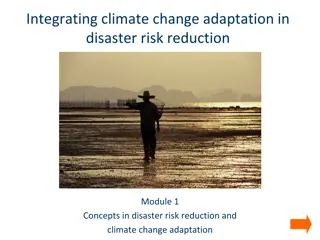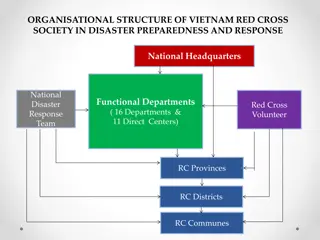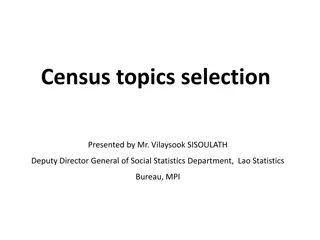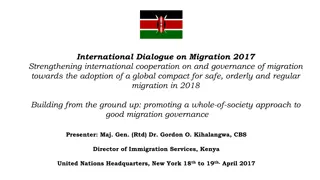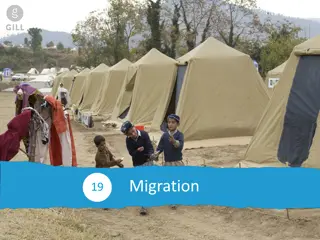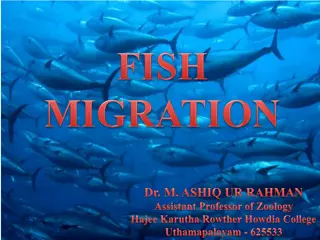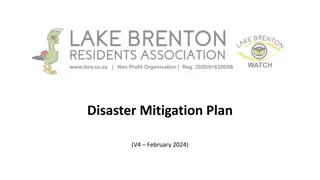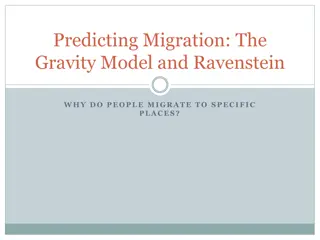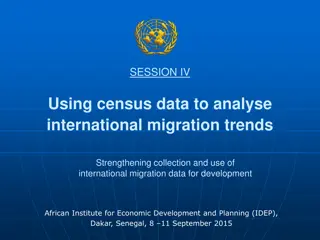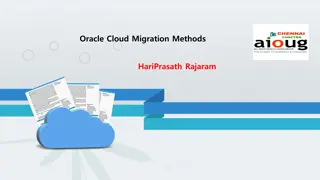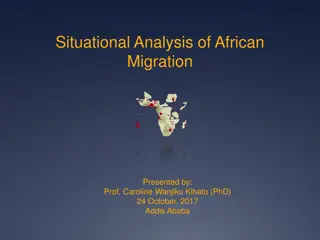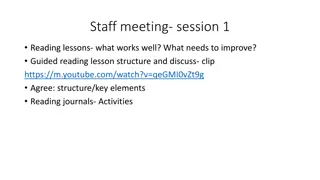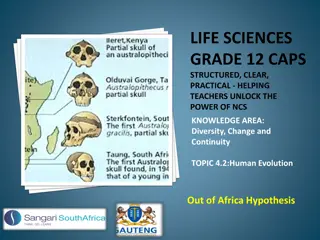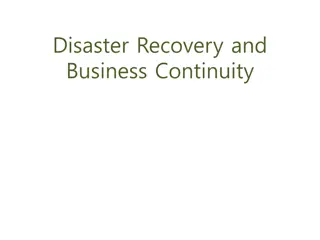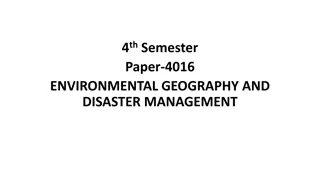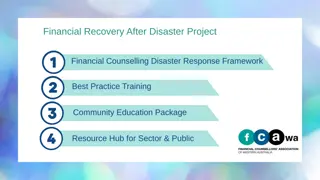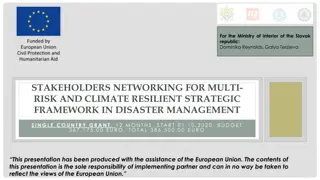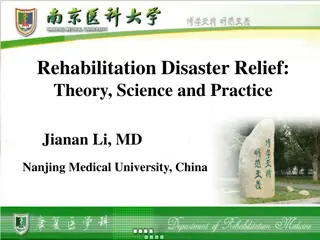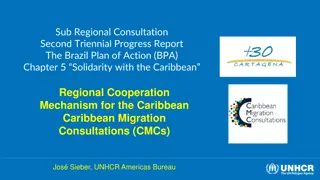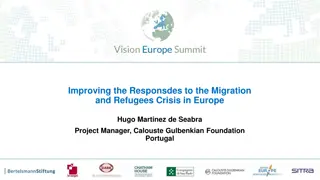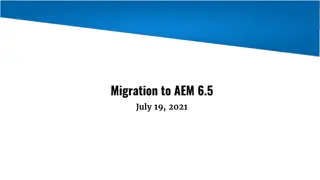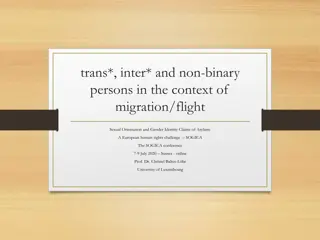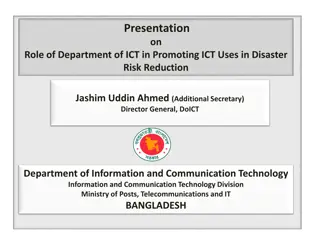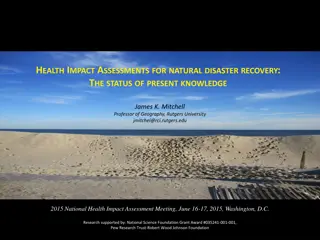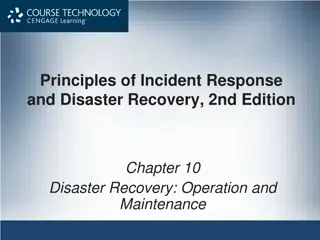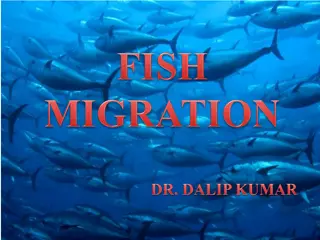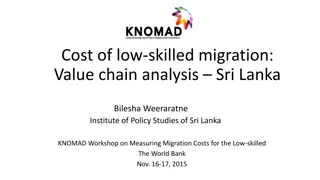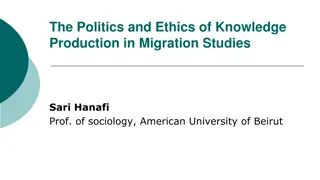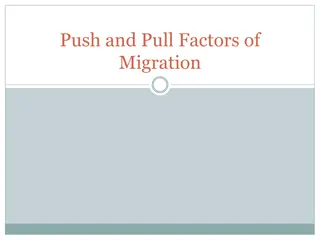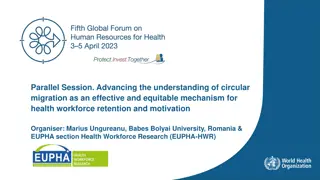Vocabulary Lessons: Nature, Disaster, Evolution, and Migration
Enhance your vocabulary with lessons on nature, disaster, evolution, and migration. Practice completing sentences and finding word opposites to improve your language skills. Engaging exercises and images included.
Download Presentation

Please find below an Image/Link to download the presentation.
The content on the website is provided AS IS for your information and personal use only. It may not be sold, licensed, or shared on other websites without obtaining consent from the author. Download presentation by click this link. If you encounter any issues during the download, it is possible that the publisher has removed the file from their server.
E N D
Presentation Transcript
English 3rd level Vocabularies part 2
Lesson 1: (Food Crops)Nature Nature part I: Complete each sentence by filling in the blank with the best word from the list. Change the form of the word if necessary. Use each word only once. Abandoned- leaveprecipitation rainfall, fall down cultivation Agriculture inseminate photosynthesis food making fertilize 1. Through __________, green plants create organic materials with the help of chlorophyll. 2. The coastal city gets (obtain) half of its __________ during the months of January, February, and March. 3. Farmers use various methods( ways , procedures, protocol) of land __________. 4. When they heard the hull crack, all but two of the sailors __________ship. 5. Inexperienced gardeners may not realize how important it is that they __________ their plants. part II:Find the word or phrase that is closest in meaning to the opposite of each word in the left- hand column. Write the letter in the blank. ---------- 1. obtain (a) weaken ---------- 2. intensify (reinforce, strength) (b) separate ---------- 3. irrigation (watering) (c) lose ---------- 4. aggregate (gathering, cluster) (d) drainage (pull) ---------- 5. adversely (negatively) (e) positively
Lesson 2:(Disaster) part I: Find the word or phrase that is closest in meaning to the opposite of each word in the left- hand column. Write the letter in the blank. ------------1. persevere persist lurk (a) to pass by without hitting ------------2. anticipate expect, predict (b) to give up ------------3. famine starvation (c) to not see something coming ------------4. collide crash, hit (d) harmless ------------5. catastrophic Disaster (e) excess of food part II: Circle the word that best completes each sentence. 1. Residents of Hawaii must accept the possibility of a volcanic (eruption /perseverance). 2. Years after the accident, she was finally able to (anticipate / unleash release) her feelings of anger. 3. Houses along the river often face (famine / flooding) during the rainy season. 4. Many people think it is cruel to (collide / plunge sink, immerse) live lobsters into boiling water. 5. A well-written essay ( article , report )should make some kind of (catastrophe / impact role) on its readers.
Lesson 3: (Evolution and Migration) part I: Find the word or phrase that is closest in meaning to the opposite of each word in the left- hand column. Write the letter in the blank. ------------- 1. physical (a) not an integral part ------------- 2. migration (b) stay the same ------------- 3. adapt (c) die ------------- 4. inherent (d) staying in one place ------------- 5. survive (e) mental part II: Choose the word from the list that is closest in meaning to the underlined part of each sentence. Write it in the blank. diverse ( vast, different, spectrum, various) evolved (develop, improve) generation ( age group, age sort ) process ( method) survive ( be alive) _______________ 1. Various languages are spoken on the Indian subcontinent. _______________ 2. Making bread involves (includes) a sequence of steps that takes about three hours. _______________ 3. Few sea turtles manage to live through their first year of life. _______________ 4. This age group tends to support reinforce current educational policies policy. _______________ 5. Her thinking about economics has changed slowly in the last several months.
Lesson 4: (Petroleum Alternatives alternate) part I: Find the word that is closest in meaning to the opposite of each word in the left- hand column. Write the letter in the blank. --------------1. stable rigid, steady (a) keep --------------2. contamination impurities (b) expand --------------3. extinct inert (c) unsteady --------------4. dispose of rid of (d) existing --------------5. shrink contract (e) purity purities part II: Circle the word that best completes each sentence. 1. The (constraints / contamination) of being in prison made her hate society even more. 2. A recognition that the Earth is round was one of the (elemental / shrunken) advances in thought during the time period. 3. Mother Teresa, who helped the poorest of the poor, had a great (disposal / reservoir) of love within her spirit. 4. Automobiles are responsible for some (emissions / extinction) of greenhouse gases. 5. By the end of the storm, the hikers had (depleted / reserved) even their emergency stores.
Science part I: Complete each sentence by filling in the blank with the best word from the list. Change the form of the word if necessary. Use each word only once. adjust (fix) arbitrary(randomly) denominator (number below the line) infinitesimal (tiny) rate (average, mean) 1. Students felt (feel)that the exam was unfair (injustice) and the grading system was rather __________. 2. The __________ of increase (enhancement, increment)) in prices made( make) it difficult (hard) for people to afford (bear) basic (essential ) goods ( items). 3. Politicians ( people who deal with politics) promised ( committed) great (big, huge,) changes ( variation) in the coming year, but any improvement (improve= develop) in people s lives was __________. 4. She quickly (fast) overcame( overcome =conquer) her culture (civilization, education) shock(trauma, impact) and found (find) it easy (simple) to __________ to the new country( zone, area). 5. You can add two fractions( fragments) that have the same __________. part II: Find the word or phrase that is closest in meaning to the opposite of each word in the left-hand column. Write the letter in the blank. --------------- 1. arbitrary (a) mix up (mixture, blending ) --------------- 2. maximize( huge, magnifying ) (b) intersecting (two lines interest) --------------- 3. sequence( make it in order) (c) minimize --------------- 4. infinitesimal (d) huge --------------- 5. parallel (equivalent) (e) planned out (systemized) Lesson 5:(Time Efficiency effective, power )Science
Lesson 6:(Ancient Life =old life) part I: Complete each sentence by filling in the blank with the best word from the list. Change the form of the word if necessary. Use each word only once. Accuracy (precise, adjustable) adjacent (close to, neighborhood) feasibly (practically ) integrally ( completely ) structure (frame , template ,building) 1. She had no idea(theme) how they could __________ take a big vacation (holiday) and remodel (refabricate, rebuild) their house in the same year. 2. Daily meditation ( thinking, belief ) is used __________ with medication (taking medicine ) and massage ( relax , rest ) as part of the recovery (healing ) plan (method). 3. The rival (competence) politicians were raised (increased ) in __________ counties. 4. If you build a __________ next to ( facing) this river, you must be sure ( confident ) it is safe against (towards) floods. 5. Once he ran(run) for public ( general) office, he understood (understand) the importance ( value) of checking public statements (law ) for __________. part II: Find the word or phrase that is closest in meaning to the opposite of each word in the left-hand column. Write the letter in the blank. --------------1. seep (weep) (a) fill --------------2. gut (tummy, digestive system ) (b) separate --------------3. retain (keep, save) (c) stay contained --------------4. compress (put pressure , pain ) (d) loosen --------------5. overlap (interference) (e) throw away
Lesson 7:(Computers) Part I: Circle the most likely meaning of the word part that is shared within each set of words. 1. circulate, circumnavigate( sailing) , circuit The root circ / circumprobably means a. around c. fair b. broken d. straight= direct 2. innovative (make a new thing) , novel (new) , renovate (renew , maintain) The root novprobably means a. clear c. new b. old d. sweet 3. installation, implement (execute) , imprison (put in prison) The prefix in-/im- probably means a. aside c. in b. behind d. out Part II: Circle the word that best completes each sentence. 1. Please make sure this information (circulates / derives) throughout the office quickly. 2. The (installation / simulation) of the new telephones took three days. 3. In order to stay on schedule (timetable), we need to complete (finish) this project (study)as (expeditiously(soon ) / innovatively) as possible. 4. The smuggler moved cautiously (caution =warring from dangerous ) through the airport to avoid (detection / maintenance). 5. Years of neglect had caused (reasoned ) the building s water pipes to (corrode / implement).
Lesson 8:(Energy) part I : Complete each sentence by filling in the blank with the best word from the list. Change the form of the word if necessary. Use each word only once. Combustion convey permeatesource 1. It is often difficult to __________ the meaning of a poem to a large audience. trigger 2. The __________ of the gossip was someone inside this office. 3. Her bad mood that day __________ the atmosphere in the laboratory. 4. The internal __________ engine revolutionized the way automobiles run. 5. A cigarette __________ the explosion. part II: Find the word or phrase that is closest in meaning to each word in the left-hand column. Write the letter in the blank. -------------1. rotate (a) separately, as an individual part -------------2. solar (b) spin on an axis -------------3. component (c) sun -------------4. discretely (d) center -------------5. nucleus (e) part
Mind and BodyLesson 9: (Memory) Mind and Body part I: Find the word or phrase that is closest in meaning to the opposite of each word in the left-hand column. Write the letter in the blank. ---------------1. degrade (decay) (a) stay out of a dispute ---------------2. anomaly (b) improve ---------------3. recede (c) questionable ---------------4. intervene (d) the norm ---------------5. indisputable (e) come forward (directly) Part II : Circle the word that best completes each sentence. 1. A huge (anomaly / gap) between the wealthy and the working class often leads (goes to) to social unrest. 2. The new computers enable us to (intervene / retrieve) information more quickly. 3. Although (despite of) she wasn t qualified (unskilled, unexperienced , uneducated ) for the job, she (indisputably / intuitively) felt that she should apply. 4. When he joined the military, he did not expect the officers to (degrade / recede) him. 5. The art in the foyer was an important (acquisition / consciousness) for the museum.
